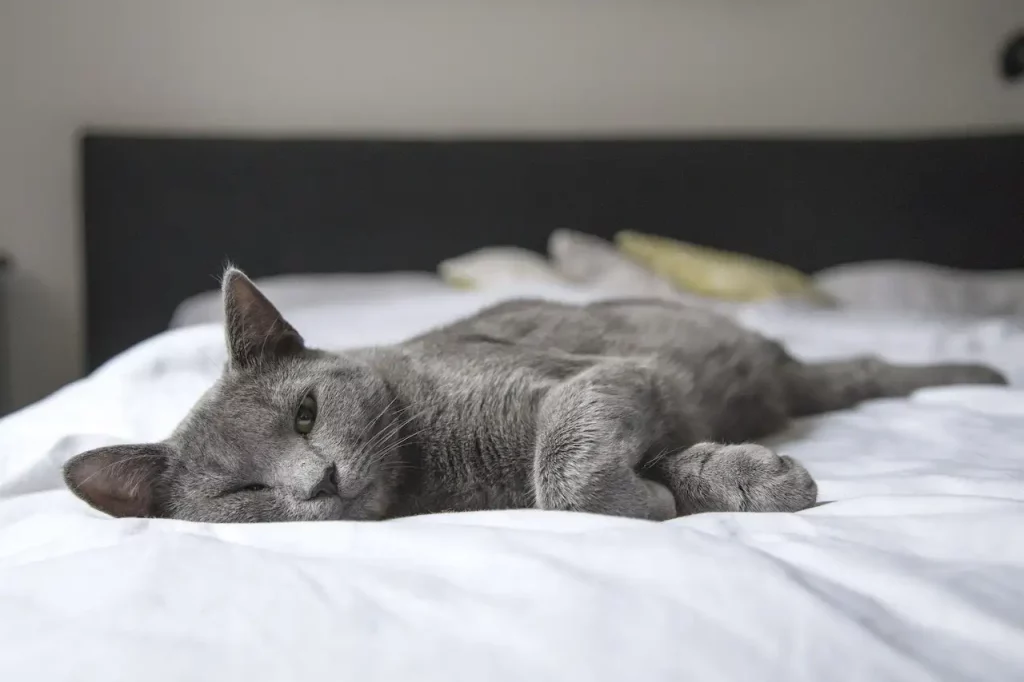Why Are Bengal Cats Illegal? Understanding the Reasons Behind the Restrictions
Curious about why are bengal cats illegal in the USA? Discover the reasons behind the ban on Bengal cats and the concerns surrounding their ownership. Bengal cats are undeniably captivating creatures, known for their striking appearance reminiscent of their wild ancestors.
However, despite their popularity and allure, these felines face restrictions in certain regions, making them illegal to own as pets. In this article, we will delve into the reasons behind the prohibition of Bengal cats and shed light on the legal, conservation, and safety concerns associated with these exotic breeds
The Allure of Bengal Cats
Bengal cats have gained popularity for their striking appearance, resembling miniature leopards with their unique coat patterns and muscular build. These domestic felines are the result of crossbreeding Asian leopard cats with domestic cats. However, despite their undeniable appeal, Bengal cats face legal restrictions in the USA. In this article, we will explore the reasons why are Bengal cats illegal and understand the concerns that have led to their ban.
Check also: Unveiling the Melodious Meow of Bengal Cats: A Fascinating Feline Communication
What Are Bengal Cats?
Bengal cats are a breed that originated in the 1960s from the selective breeding of Asian leopard cats and domestic cats. Their exotic appearance and energetic nature have made them highly sought after by cat enthusiasts. Bengal cats have a distinctive spotted or marbled coat, which comes in various colors such as brown, silver, and snow. They are known for their playful and intelligent personality, often displaying dog-like behaviors such as playing fetch and learning tricks.
Check also: Types of Bengal Cats: A Comprehensive Guide to the Different Varieties
The Legal Status of Bengal Cats in the USA
Bengal cats are not illegal in the entire USA. However, there are restrictions on owning or breeding them in certain states and municipalities. The legality of Bengal cats varies across the country, with some states allowing ownership with specific permits, while others have outright bans. The states that commonly have restrictions or bans include New York, Georgia, Massachusetts, and Hawaii, among others.
Reason 1: Conservation Concerns
One of the primary reasons behind the restrictions on Bengal cats is conservation. The Asian leopard cat, a wild species found in parts of Asia, is listed as a threatened species due to habitat loss and poaching. Breeding Bengal cats involves hybridization with the Asian leopard cat, which raises concerns about the potential impact on the conservation efforts of this endangered species. The ban on Bengal cats aims to prevent the exploitation and endangerment of the Asian leopard cat population.
Reason 2: Potential Health and Behavior Issues
Another factor contributing to the ban on Bengal cats is the potential health and behavior issues associated with their breeding. While Bengal cats are generally healthy, they may inherit certain genetic conditions from their wild ancestry, such as hypertrophic cardiomyopathy (HCM) and progressive retinal atrophy (PRA). Additionally, the hybrid nature of Bengal cats can result in unpredictable temperaments and increased activity levels, making them challenging pets for some individuals. The ban aims to protect both the cats and potential owners from these risks.
Reason 3: Threat to Native Wildlife
Bengal cats possess natural hunting instincts, which can pose a threat to native wildlife if they escape or are released into the wild. The hybridization with the Asian leopard cat enhances these predatory instincts, making Bengal cats more adept hunters compared to domestic cats. Concerns arise regarding the potential impact on local ecosystems and the delicate balance of native wildlife. The ban on Bengal cats helps prevent potential ecological disruptions caused by the release or escape of these hybrid cats.
Reason 4: Irresponsible Breeding Practices
Irresponsible breeding practices have contributed to the ban on Bengal cats in certain areas. The high demand for Bengal cats has led to unscrupulous breeders who prioritize profit over the well-being of the cats. These breeders may engage in unethical practices, such as improper care, inadequate socialization, and overbreeding. The ban helps discourage these irresponsible breeding practices and promotes responsible breeding standards that prioritize the health and welfare of the cats.
Reason 5: Invasive Species
Bengal cats are often considered an invasive species due to their ability to adapt to different environments and potential impact on local ecosystems. In areas where they are illegal, authorities aim to prevent the escape or release of Bengal cats, which could disrupt local wildlife and ecosystems.
Reason 6: Public Safety
Another aspect that influences the legal restrictions on Bengal cats is public safety. While Bengal cats are domesticated, their wild ancestry can manifest in certain behaviors. These cats may have a higher tendency to exhibit aggressive or unpredictable behavior compared to fully domesticated cats, potentially posing risks to individuals or other pets.
Concerns Surrounding the Hybrid Nature of Bengal Cats
One of the primary reasons for the restrictions on Bengal cats is their hybrid genetic makeup. Being a crossbreed between a domestic cat and an Asian leopard cat, Bengal cats possess certain wild characteristics and behaviors. While their temperament and adaptability can vary, the potential for exhibiting more unpredictable and aggressive traits exists.
Check also: Best Interactive Cat Toys for Hours of Playful Fun
Additionally, concerns have been raised about the potential for these hybrid cats to escape or be released into the wild, leading to hybridization with native wildcat populations. Such hybridization can disrupt local ecosystems and threaten the genetic integrity of native species.
Exploring the Reasons and Restricted States in the USA

Why Are Bengal Cats Illegal in California?
California has some of the most stringent regulations regarding Bengal cats. In this state, Bengal cats are classified as “wild animals” under the California Code of Regulations. This classification means that owning a Bengal cat requires obtaining a permit from the Department of Fish and Wildlife. The permit is only granted for educational or scientific purposes and is not available for private ownership.
Why Are Bengal Cats Illegal in Hawaii?
Hawaii is another state where Bengal cats are illegal to own. The unique ecosystem of the Hawaiian Islands is home to various endangered native species, and the introduction of non-native animals poses a significant threat to their survival. To protect the delicate balance of the local environment, Hawaii prohibits the ownership of Bengal cats and other non-domesticated animals.
Why Are Bengal Cats Illegal in New York?
In New York, ownership of certain exotic cats, including Bengal cats, is strictly prohibited. The state’s Department of Environmental Conservation lists Bengal cats as one of the species that require a special license to own. The ban aims to prevent potential risks associated with owning exotic animals and to protect public safety.
Check also: Why are Bengal Cats Illegal in NYC? Exploring the Reasons Behind the Ban
Why Are Bengal Cats Illegal in Massachusetts?
Massachusetts classifies Bengal cats as “wild animals” under its regulations. Consequently, owning a Bengal cat in this state is subject to strict regulations and permits. The Massachusetts Division of Fisheries and Wildlife is responsible for granting permits for individuals or organizations engaged in education or exhibition purposes. Private ownership is generally not permitted.
Why Are Bengal Cats Illegal in Georgia?
Georgia restricts the ownership of wild and exotic animals, which includes Bengal cats. To possess a Bengal cat in this state, individuals must obtain a Wild Animal License from the Georgia Department of Natural Resources. The license requires compliance with various regulations, such as appropriate enclosures, animal welfare standards, and public safety measures.
Why Are Bengal Cats Illegal in Delaware?
Delaware prohibits the ownership of exotic animals, and Bengal cats fall under this category. The state’s Department of Agriculture enforces the ban on owning exotic animals, which includes the breeding, sale, or possession of Bengal cats. The restrictions aim to prevent potential risks to public safety, animal welfare, and the environment.
Why Are Bengal Cats Illegal in Florida?
Florida imposes stricter regulations on Bengal cats compared to some other states. The Florida Fish and Wildlife Conservation Commission requires a Class II permit for owning Bengal cats. This permit is subject to specific conditions, such as providing proper housing, preventing escapes, and meeting stringent care standards. The aim is to ensure the safety of the public and the well-being of the animals.
The Role of Regulations and Enforcement
To enforce the ban on Bengal cats, state and local authorities have implemented regulations and restrictions. These regulations may include permitting requirements, mandatory sterilization, and fines for violations. Animal control agencies and law enforcement play a crucial role in monitoring and enforcing these regulations to ensure compliance and protect both the cats and the environment.
Conservation Efforts and Protection of Native Wildlife
While the ban on Bengal cats may seem restrictive to cat enthusiasts, it plays a vital role in conservation efforts. Conservation organizations and wildlife agencies focus on preserving the natural habitats and populations of endangered species such as the Asian leopard cat. By restricting the breeding and ownership of Bengal cats, these organizations aim to prevent the potential negative impacts on the wild counterparts and ensure the long-term survival of these species.
Check also: Do Bengal Cats Shed? Everything You Need to Know
Responsible Breeding and Advocacy
Responsible breeders play an essential role in promoting the welfare of Bengal cats and advocating for their responsible ownership. They adhere to ethical breeding practices, prioritize the health and temperament of the cats, and educate potential owners about the specific needs and challenges associated with Bengal cats. Responsible breeders also work closely with conservation organizations to support the protection of the Asian leopard cat and its natural habitat.
Alternatives for Exotic Cat Enthusiasts
For cat enthusiasts drawn to the exotic appearance of Bengal cats, there are alternative options that can provide a similar aesthetic without the legal restrictions. Several domestic cat breeds possess coat patterns that resemble those of Bengal cats, such as the Egyptian Mau and the Ocicat. These breeds offer the allure of wild-looking cats while being free from the legal constraints associated with Bengal cats.
Conclusion
In conclusion, Bengal cats are illegal to own in several states within the USA due to concerns surrounding their hybrid nature and potential impact on local ecosystems and wildlife populations. The restrictions vary from outright bans to the requirement of permits for ownership. States such as California, Hawaii, New York, Massachusetts, Georgia, Delaware, and Florida have implemented regulations to safeguard public safety, animal welfare, and the environment. It is important for prospective Bengal cat owners to research and understand the legal status and requirements in their respective states before considering ownership.





